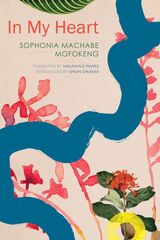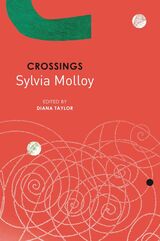3 books about My Heart

Alone in the House of My Heart
Poems
Kari Gunter-Seymour
Ohio University Press, 2022
Deeply rooted in respect and compassion for Appalachia and its people, these poems are both paeans to and dirges for past and present family, farmlands, factories, and coal. Kari Gunter-Seymour’s second full-length collection resounds with candid, lyrical poems about Appalachia’s social and geographical afflictions and affirmations. History, culture, and community shape the physical and personal landscapes of Gunter-Seymour’s native southeastern Ohio soil, scarred by Big Coal and fracking, while food insecurity and Big Pharma leave their marks on the region’s people. A musicality of language swaddles each poem in hope and a determination to endure. Alone in the House of My Heart offers what only art can: a series of thought-provoking images that evoke such a clear sense of place that it’s familiar to anyone, regardless of where they call home.
[more]

Carrying a Secret in My Heart
Children of the Victims of the Reprisals after the Hungarian Revolution in 1956 - An Oral History
Zsuzsanna Korösi
Central European University Press, 2003
For a decade now, the authors have been conducting interviews for Hungary's Oral History Archives, with the children of those Hungarians - national heroes, as they are generally seen today - who were imprisoned or executed for their involvement in the 1956 revolution. The vast body of material that has been collected, and is now at the disposal of sociologists, psychologists and others in the academic community, forms the basis of this volume. This is a documentation of memories of the revolt and, more particularly, its aftermath. The virtually spontaneous twelve-day uprising exerted a lasting effect on the fates of the families of the more than 20,000 who were imprisoned and 229 executed by the régime in the harsh reprisals that followed the crushing of the revolution (the last of them as late as the early 1960s), with active police surveillance extended to tens of thousands more. This intimidation, and the attendant social and economic devastation that it wrought, bore especially hard on the psyches, upbringing and education, and hence the subsequent opportunities and life courses of the children who grew up within those families. The material is grouped by theme: e.g. the effects on communication within families, changes in social status, how relatives and friends reacted, and what sorts of problems these children encountered in pursuing their studies, in trying to assimilate into society as adults, and in relating to those fathers who did return. In an appendix, the editors present detailed biographies of the people most directly affected, offering an unparalleled glimpse into the fates of those they interviewed. The documentation includes letters that the children wrote to their imprisoned fathers and the farewell letters of the executed to their families.
[more]

In My Heart
Sofonia Machabe Mofokeng
Seagull Books, 2021
One of few books translated into English from Sesotho, In My Heart introduces a long-neglected voice to global readership.
Elsewhere Texts, edited by Gayatri Chakraborty Spivak and Hosam Aboul-Ela, presents radical new engagements with non-European literary cultures. This volume, the latest in this ambitious series, is a brilliant collection of essays originally written in Sesotho by Sophonia Machabe Mofokeng. Often confined to the role of “native informants” in the nineteenth and twentieth centuries, writers working in African languages laid the foundation for the politics and poetics of decolonization and are legendary among their own communities of readers, though their work remains little known elsewhere. In My Heart belongs to this tradition of colonial renegades. Writing in the 1950s during the cataclysmic events of apartheid that were transforming life in South Africa, Mofokeng offers a series of meditations that provide his readers with a Sesotho worldview outside the categories authorized by colonial knowledge. In My Heart, expertly translated by Nhlanhla Maake, introduces a significant African thinker’s influential work to a global readership.
Elsewhere Texts, edited by Gayatri Chakraborty Spivak and Hosam Aboul-Ela, presents radical new engagements with non-European literary cultures. This volume, the latest in this ambitious series, is a brilliant collection of essays originally written in Sesotho by Sophonia Machabe Mofokeng. Often confined to the role of “native informants” in the nineteenth and twentieth centuries, writers working in African languages laid the foundation for the politics and poetics of decolonization and are legendary among their own communities of readers, though their work remains little known elsewhere. In My Heart belongs to this tradition of colonial renegades. Writing in the 1950s during the cataclysmic events of apartheid that were transforming life in South Africa, Mofokeng offers a series of meditations that provide his readers with a Sesotho worldview outside the categories authorized by colonial knowledge. In My Heart, expertly translated by Nhlanhla Maake, introduces a significant African thinker’s influential work to a global readership.
[more]
READERS
Browse our collection.
PUBLISHERS
See BiblioVault's publisher services.
STUDENT SERVICES
Files for college accessibility offices.
UChicago Accessibility Resources
home | accessibility | search | about | contact us
BiblioVault ® 2001 - 2025
The University of Chicago Press









